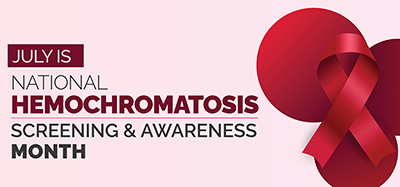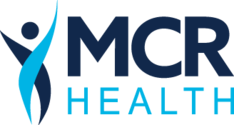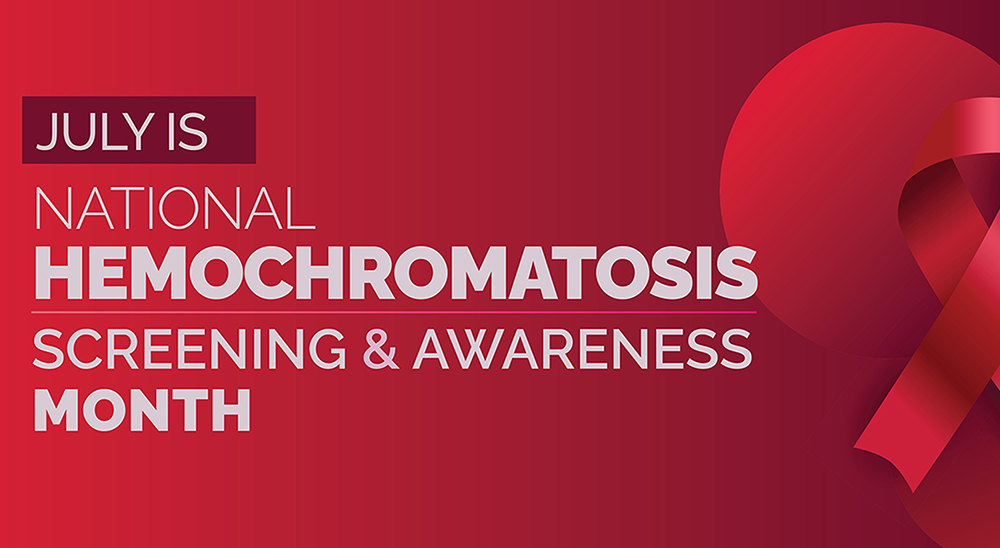
Welcome to National Hemochromatosis Awareness Month, a dedicated time to raise awareness about a condition that affects millions of individuals worldwide. Hemochromatosis is a serious yet often misunderstood disorder that results in the body accumulating excessive iron. MCR Health is committed to spreading awareness about this condition, providing essential information on its impact, recognizing the importance of this month, and highlighting effective treatment options. Join us in our mission to create a healthier, more informed society.
What is Hemochromatosis?
Hemochromatosis is a genetic disorder characterized by the body’s inability to regulate iron absorption properly. Normally, the body absorbs only the required amount of iron from the food we eat, but individuals with hemochromatosis absorb much more than they need. This surplus iron accumulates in various organs, particularly the liver, heart, and pancreas. Over time, the excess iron damages these vital organs, leading to serious health complications.
Who is Affected by Hemochromatosis?
Hemochromatosis is more common than you might think, with significant variations in its prevalence among different populations. Studies suggest that it primarily affects individuals of Northern European descent, including those of Irish, British, and Scandinavian backgrounds. It is estimated that about 1 in 200 people in these populations have inherited the genetic mutations responsible for hemochromatosis. However, it is essential to note that the condition can affect individuals of any ethnicity.
Treating Hemochromatosis
Hemochromatosis is a manageable condition with early detection and appropriate treatment. The most common and effective treatment for hemochromatosis is phlebotomy, a process similar to blood donation. Regular phlebotomy sessions help remove excess iron from the body, reducing the risk of organ damage. In some cases, when phlebotomy may not be suitable, iron-chelating medications can be prescribed to lower iron levels.
It is vital for individuals diagnosed with hemochromatosis to work closely with their healthcare providers to develop a personalized treatment plan that suits their specific needs and health status.
The Importance of Recognizing Hemochromatosis Awareness Month
Recognizing National Hemochromatosis Awareness Month is crucial for several reasons. Firstly, many individuals with hemochromatosis may remain undiagnosed or misdiagnosed for years, leading to preventable complications. Increased awareness can encourage people to get tested for the condition, especially those with a family history of hemochromatosis or related symptoms. Early detection can significantly improve treatment outcomes and enhance patients’ quality of life.
Secondly, awareness initiatives can help debunk myths and misconceptions surrounding hemochromatosis. Understanding the genetic basis of the condition and its impact on various organs will lead to increased empathy and support for affected individuals and their families.
How to Recognize Hemochromatosis Awareness Month
Participating in Hemochromatosis Awareness Month is easy, and you can make a difference in various ways:
-
Share information: Spread the word about hemochromatosis through social media, blog posts, and community events. Use the hashtag #HemochromatosisAwareness to reach a broader audience.
-
Organize educational events: Collaborate with local healthcare providers, organizations, and MCR Health to host seminars, webinars, or workshops to educate the public about hemochromatosis.
-
Wear gray: The color gray represents awareness for hemochromatosis. Wear a gray ribbon or clothing item to show your support.
-
Fundraising: Consider organizing a fundraising campaign to support hemochromatosis research and support services.
-
MCR Health’s Commitment to Care
At MCR Health, we are dedicated to providing comprehensive care and support for individuals affected by hemochromatosis. Our team of skilled healthcare professionals is committed to early diagnosis, effective treatment, and ongoing management of this condition. We actively participate in raising awareness of hemochromatosis and provide resources to the general public and those affected by this condition.
As we observe National Hemochromatosis Awareness Month, let us unite to raise awareness, educate our communities, and provide support for individuals and families affected by this condition. Don’t hesitate; take charge of your health by scheduling an evaluation today. Together, we can create a brighter future for those living with hemochromatosis. Let’s work together to change things and give those who are suffering from this genetic disorder hope.
 Due to damages sustained from Hurricane Milton, the Riverside Medical Center remains closed until further notice. Our Cardiology, Pulmonology, Woundcare and Dermatology departments have been relocated to our other Healthcare Centers. All other MCR Health locations are operating normally.
Due to damages sustained from Hurricane Milton, the Riverside Medical Center remains closed until further notice. Our Cardiology, Pulmonology, Woundcare and Dermatology departments have been relocated to our other Healthcare Centers. All other MCR Health locations are operating normally.
